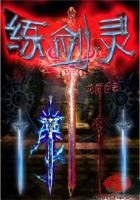But how this Question of the Trial grew laboriously, through the weeks of gestation, now that it has been articulated or conceived, were superfluous to trace here. It emerged and submerged among the infinite of questions and embroilments. The Veto of Scoundrels writes plaintive Letters as to Anarchy; 'concealed Royalists,' aided by Hunger, produce Riots about Grain.
Alas, it is but a week ago, these Girondins made a new fierce onslaught on the September Massacres!
For, one day, among the last of October, Robespierre, being summoned to the tribune by some new hint of that old calumny of the Dictatorship, was speaking and pleading there, with more and more comfort to himself; till, rising high in heart, he cried out valiantly: Is there any man here that dare specifically accuse me? "Moi!" exclaimed one. Pause of deep silence: a lean angry little Figure, with broad bald brow, strode swiftly towards the tribune, taking papers from its pocket: "I accuse thee, Robespierre,"--I, Jean Baptiste Louvet! The Seagreen became tallow-green; shrinking to a corner of the tribune: Danton cried, "Speak, Robespierre, there are many good citizens that listen;" but the tongue refused its office. And so Louvet, with a shrill tone, read and recited crime after crime: dictatorial temper, exclusive popularity, bullying at elections, mob-retinue, September Massacres;--till all the Convention shrieked again, and had almost indicted the Incorruptible there on the spot. Never did the Incorruptible run such a risk. Louvet, to his dying day, will regret that the Gironde did not take a bolder attitude, and extinguish him there and then.
Not so, however: the Incorruptible, about to be indicted in this sudden manner, could not be refused a week of delay. That week, he is not idle; nor is the Mother Society idle,--fierce-tremulous for her chosen son. He is ready at the day with his written Speech; smooth as a Jesuit Doctor's; and convinces some. And now? Why, now lazy Vergniaud does not rise with Demosthenic thunder; poor Louvet, unprepared, can do little or nothing:
Barrere proposes that these comparatively despicable 'personalities' be dismissed by order of the day! Order of the day it accordingly is.
Barbaroux cannot even get a hearing; not though he rush down to the Bar, and demand to be heard there as a petitioner. (Louvet, Memoires (Paris, 1823) p. 52; Moniteur (Seances du 29 Octobre, 5 Novembre, 1792); Moore (ii.
178), &c.) The convention, eager for public business (with that first articulate emergence of the Trial just coming on), dismisses these comparative miseres and despicabilities: splenetic Louvet must digest his spleen, regretfully for ever: Robespierre, dear to Patriotism, is dearer for the dangers he has run.
This is the second grand attempt by our Girondin Friends of Order, to extinguish that black-spot in their domain; and we see they have made it far blacker and wider than before! Anarchy, September Massacre: it is a thing that lies hideous in the general imagination; very detestable to the undecided Patriot, of Respectability: a thing to be harped on as often as need is. Harp on it, denounce it, trample it, ye Girondin Patriots:--and yet behold, the black-spot will not trample down; it will only, as we say, trample blacker and wider: fools, it is no black-spot of the surface, but a well-spring of the deep! Consider rightly, it is the apex of the everlasting Abyss, this black-spot, looking up as water through thin ice;--say, as the region of Nether Darkness through your thin film of Gironde Regulation and Respectability; trample it not, lest the film break, and then--!
The truth is, if our Gironde Friends had an understanding of it, where were French Patriotism, with all its eloquence, at this moment, had not that same great Nether Deep, of Bedlam, Fanaticism and Popular wrath and madness, risen unfathomable on the Tenth of August? French Patriotism were an eloquent Reminiscence; swinging on Prussian gibbets. Nay, where, in few months, were it still, should the same great Nether Deep subside?--Nay, as readers of Newspapers pretend to recollect, this hatefulness of the September Massacre is itself partly an after-thought: readers of Newspapers can quote Gorsas and various Brissotins approving of the September Massacre, at the time it happened; and calling it a salutary vengeance! (See Hist. Parl. xvii. 401; Newspapers by Gorsas and others (cited ibid. 428.) So that the real grief, after all, were not so much righteous horror, as grief that one's own power was departing? Unhappy Girondins!















